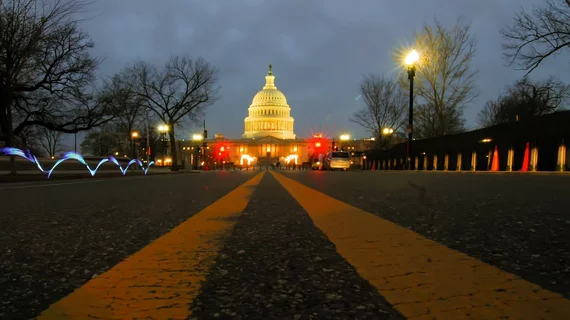Radiology societies are voicing their support for a bipartisan bill aimed at mitigating Medicare cuts tied to clinical labor costs.
House representatives first introduced the Providing Relief and Stability for Medicare Patients Act of 2023 on May 25. The proposal would provide relief to radiologists, radiation oncologists and other specialists stemming from updates to clinical labor prices in the physician fee schedule.
Nearly two dozen medical societies support the bill, including the American College of Radiology, Society of Interventional Radiology and the American Society for Radiation Oncology. Absent any legislative action, they’re concerned about the sustainability of procedural care provided in sites outside of hospitals and ambulatory surgery centers.
“The office setting is … critical for patient access (especially in rural and underserved areas) and can result in patients receiving care in a timelier manner,” the physician groups wrote in a May 26 letter to the legislation’s sponsors. “Unfortunately, the prolonged instability within the Medicare Physician Fee Schedule—driven by a confluence of fiscal uncertainties physician practices face related to statutory payment cuts, perennial lack of inflationary updates, significant administrative barriers, and the cumulative impact of the pandemic—is jeopardizing the financial viability of many community, office-based physician practices.”
H.R. 3674 would address this issue by providing an increase to nonfacility practice expense RVUs for procedures performed in office settings that require high-tech devices or equipment, ACR reported Thursday. Currently, Medicare payment for clinical labor, medical supplies and equipment costs are “budget neutral,” meaning an increase in one leads to cuts for another.
The bill currently has four initial sponsors: Reps. Gus Bilirakis, R-Fla., Tony Cárdenas D-Calif., Danny Davis, D-Ill., and Greg Murphy R-N.C., who also is an MD. In a joint announcement, the quartet emphasized the importance of preserving seniors’ access to in-office procedures delivered by interventional radiologists and other specialists.
“As a practicing surgeon of over 30 years, I understand the disastrous impacts that Medicare cuts have on physicians and beneficiaries’ access to services,” Congressman Murphy, who specializes in urological care, said in a statement issued Thursday, June 1. “Due to the budget-neutral nature of the physician fee schedule, specialties with high direct costs will see overall decreases in reimbursement with increases in clinical labor wages. This inevitably results in physicians’ offices closing, increased consolidation, and ultimately, Medicare beneficiaries seeking care in a higher-cost setting.”

